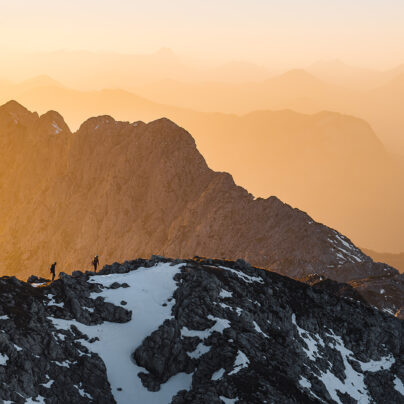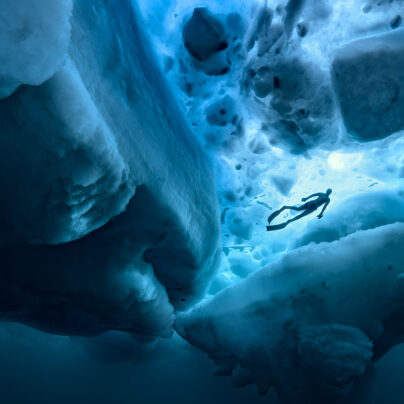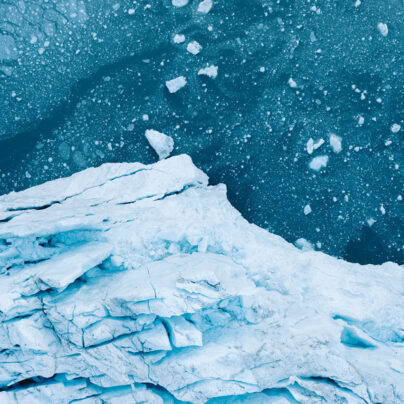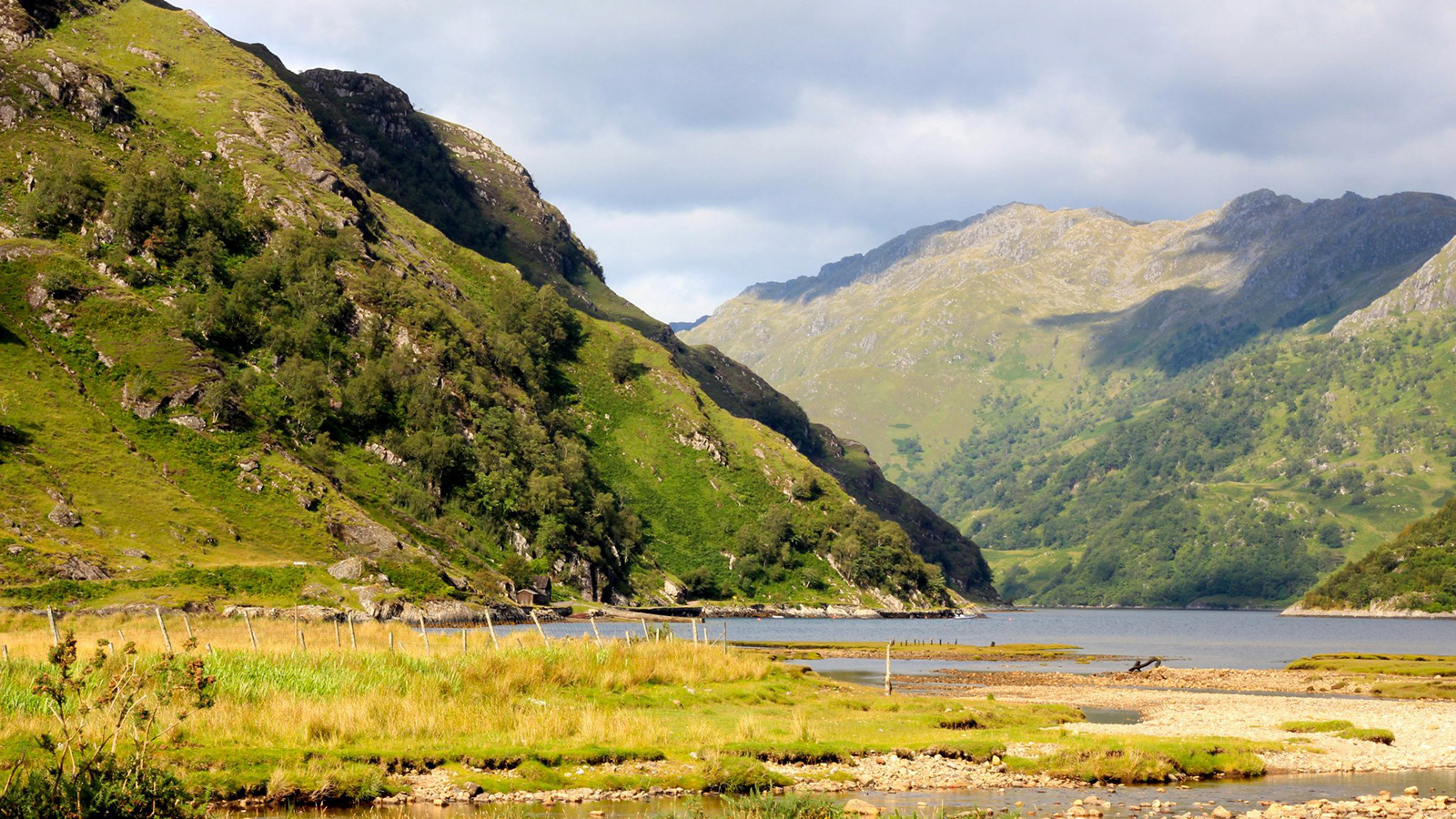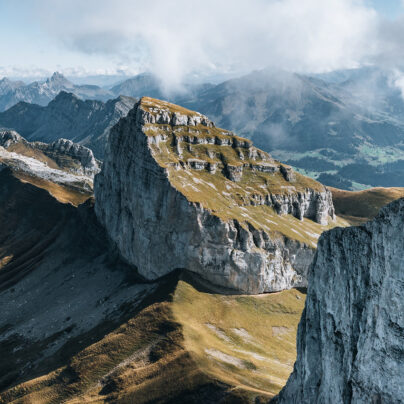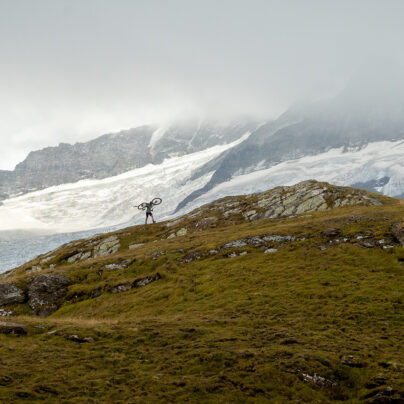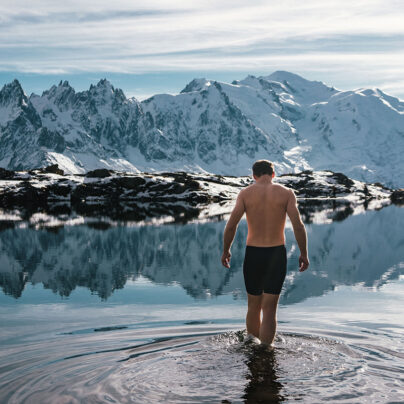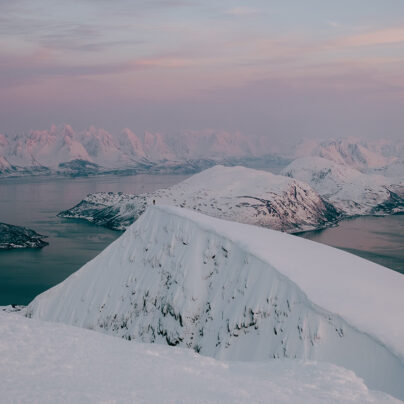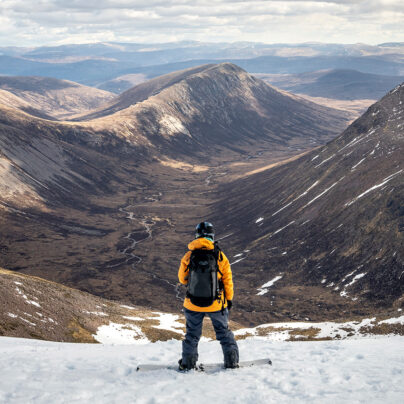The Wrath of Broken Things
Jamie Maddison
I had decided to take up this challenge on a whim of enthusiasm, solo, and only using the equipment I’ve accumulated from a lifetime of outdoor activity; a decade-old rucksack, my weighty two-man tent, a discount pair of boots, a cheap stove and an old ski-jacket. In truth, I really couldn’t afford anything more.
The Cape Wrath Trail is one of Britain’s toughest long distance walking trails. At over 200 miles long, it takes aspirant crossers from out underneath the shadows of Ben Nevis at Fort William through the remoteness and isolation of the Scottish mountainscape to Cape Wrath, the UK’s most north-westerly point. It’s a trail not endorsed by many walking organisation, has no signposts pointing out the way, and there’s few chances to pop back into civilisation once you’re well and truly committed. I had decided to take up this challenge on a whim of enthusiasm, solo, and only using the equipment I’ve accumulated from a lifetime of outdoor activity; a decade-old rucksack, my weighty two-man tent, a discount pair of boots, a cheap stove and an old ski-jacket. In truth, I really couldn’t afford anything more.
The initial train journey to Fort William lasts a hundred summer days; the distance between each stop measured by the hour in my racing mind. And so it is quite late in the afternoon by the time I finally reach the start of the trail. I head straight for the ferry across Loch Eil; my shoulders still unfamiliar with the pressing weight of the heavily laden pack. Crossing the loch, all is calm and the still; soon I’m walking down a quiet road, trying to eat away the mileage of full day’s walk in the space of one late afternoon. The lake rolls away and after three hours of empty thoughts, mirroring the empty lanes I stroll down, I finally meet a cyclist. He gestures helpfully to a good bivvy spot underneath the roots of an upturned oak tree and then wishes me the best of luck in my trek before disappearing, back to his home and wife. I’m left to set up camp by myself in the dying embers of the first day.

I awake sweaty and bitten to the thrashing sound of rain on canvas; this morning is bleak and dark in the downpour. After decamping as quickly as my sleepy fingers can manage, I’m soon off walking along the road for Glenfinnan; a bedraggled figure lit up in the headlights of passing cars, driven by anonymous drivers no doubt on their way to somewhere warm and dry.
By the time I reach the Glenfinnan Viaduct, I’m soaked through to the bone. The poncho I had taken as part of a lightweight approach has proved itself useless in extreme, as have the boots; lightweight and very comfy but exceedingly unwaterproof. Wet feet slosh back and forth in the fabric, as they take me up, over the mountain pass and into my first taste of remoteness. Despite the grim conditions I’m not that cold and the heavy exertion of hefting the outsized pack makes me imagine myself – arms threaded through the chest straps – to be a valiant polar explorer pulling a pulk, destined for the grim North.
After hours of the mind swirling around the realms of nothing in particular I’m down on the other side of the pass, just a few miles away from the Glendessary bothy and sleep. However stopping for a break isn’t quite an option; every time I slow down for a snack, the midges descend, zeroing in on any piece of exposed flesh, biting through the flimsy head net, intent on having their fill of me. Cursing, swearing and swatting to no avail, my weary feet are always forced to soon get moving again. Hence I’m already flagging quite severely as I enter a section of gloomy woodland, sinking into a blacker mood still when the trail peters out, abandoning me between the silent, dead firs.
I step forward and suddenly sink up to my thighs, through a covering of vivid green sphagnum moss into a treacherous bog underneath. Panic surges. Visions of every Hollywood movie featuring a quicksand drowning flit across my eyes in rapid succession. Suction grips at each leg and I sink a little bit more as I try to pull one foot out, then the other. But after a brief struggle, I manage to at last claw onto solid land. Even now, I can’t stop to rest as the insects wont let up and so it’s back to trekking. Through line after line, row after row, of lifeless trees I walk. Past a barrel tied to a chain – it looks like a trap – then further on I pass an isolated sapling strung up with a halogen striplight. Wires thread down the trunk and disappear into the undergrowth; the contraption’s use entirely unknown to me. Finally, in this dark Narnia of a world I find a tennis umpire’s chair, perched lazily against the back of a tree. I hurry on quickly, away from this strange place.
Exhausted, bitten and sodden I arrive at the bothy, which is empty and still. I’m shattered to the bone; weary beyond anything I thought I’d be. I feebly try to dry my shoes – which have absorbed enough water to fill a swimming pool – but there’s little wood to keep the fire going. I cook a meagre supper, breaking my only spork in the process. Dejected, there’s nothing to do now but sleep, as the beautiful view of the Glendessary hills – abruptly golden in a smug burst of late evening sunshine – fades away and the stars of an unpolluted sky begin to emerge in the still air.
My mind swings back and forth for the entirety of the third day. Devoid of anyone to talk to, all I can focus on is whether I’m strong enough to complete the trek. Every uphill, every passing rain shower, every midge-infested stopping spot screams at my brain that I won’t make it, that this is ridiculous. Then, with every passing downhill or beautiful vista, I envisage myself standing there at the Cape; confident that all the long miles in-between will go just fine. To pass the time, I try to remember passages of Shakespeare but upon reciting Macbeth, the Scottish play, the Heaven’s open with bullets of angry rain and I am again swimming through wet air. ‘Okay! Okay! I get the message!’ I shout heatedly around the rocky valley, at this stupid world.
I step forward and suddenly sink up to my thighs, through a covering of vivid green sphagnum moss into a treacherous bog underneath. Panic surges. Visions of every Hollywood movie featuring a quicksand drowning flit across my eyes in rapid succession.


‘Day 4 is easy, Day 5 is hard, Day 6 is easy, Day 7 is hard’ I repeat to myself, looking at maps in the Barisdale bothy that evening. ‘Then,’ I think furiously, ‘I’m at Ullapool. If I can just make it to Ullapool all with be good.’ That night a latecomer enters my room. He flashes a torch across the empty bunks, half-waking me in the process, before retreating back outside; choosing to sleep on a dirty kitchen floor rather than share the night with the growingly fetid smell of my only set of clothing.
‘Day Four is the easy day’, I recite again to myself as wet socks are stuffed into still-wet boots: ‘It’s the easy day.’ The morning is glorious. Hot sunshine beats down welcomingly as I skirt around Loch Hourn. I haven’t met another walker on route for the past four days and with no phone reception either the feeling of remoteness is powerful. There are constant peat bogs I have to negotiate with every step; endless rivulets of water, bog and mud, that suck at your boots and try to drag you down. But as I get further, rising up Sgurr na Sgine and over an unmanned pass, the satisfaction of lugging this weight, this far and to these heights, spurs me on to keep up the damning pace I’ve set myself. I’m due to be my brother’s university graduation in a two-week’s time and I have to walk the full mileage every day if I am to get back for it.
A steep descent jars my already twingey knee, but I’m soon back on the road and on the way to Camp Four at Shiel Bridge. Exhaustion is starting to bite deep and I quickly revert back into Polar-pulling mode once again, grunting my way alongside the uncaring traffic. Arriving at a shop feels like entering Paradise. I buy biscuits, sandwiches, shortbreads and bottles of Lucozade before retiring to the campsite to set up the tent. Bitten, crawled over, devoured I scratch frantically at the swarms of attacking insects; they’re in my hair, in my freshly erected tent and in my head. My feet are wrinkled and white from their twelve-hour watery drowning and shoots of fiery pain keep flitting across random toes. I start to worry about trenchfoot. I don’t sleep well: imaginary insects crawl over my body, their bites just as strong as their real counterparts, also sharing the feast of my tired flesh.
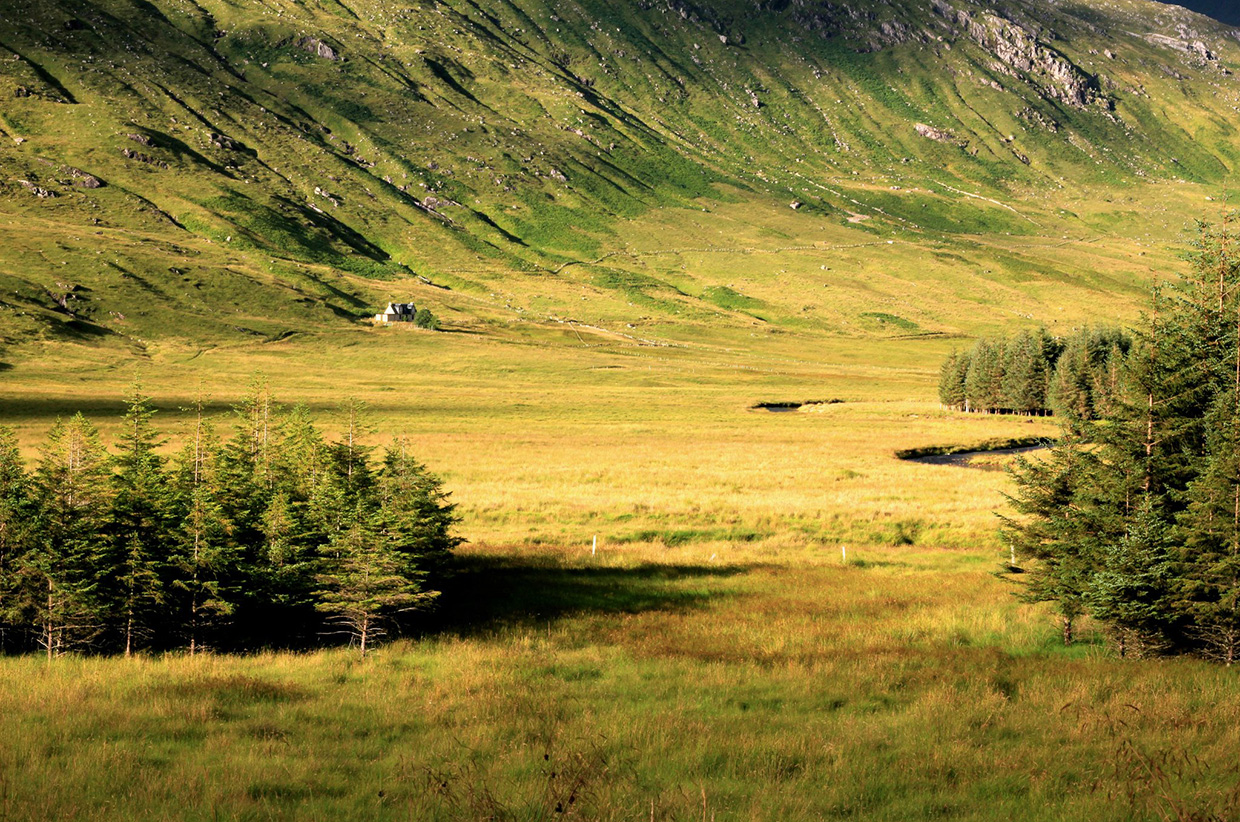
‘Day Five, then an easy day, then a hard day, then you’re at Ullapool. I just have to make Ullapool,’ I once again repeat to myself. The start of a day always go well; I walk and walk and walk and tell myself I’ll make the Cape just fine. But this day is long, and whilst taking my boots of to cross a river I notice a big gash in the side of the shoe, a hole is forming as the glue between the sole and the upper fabric disintegrates. I walk on anyway (what else is there to do?). Over hill, over bog, through rain. ‘It’s the fifth day,’ the mantra repeats,‘ I just have to make it to Ullapool.’ There’s no track this way and I’m wallowing over mud and peat, evil horseflies biting my arms if I try to seek a moment’s respite.
It’s not that I’m not lost but I’m close, as my little figure threads hesitantly between the undulations. I pass either side of rises, traipsing through puddles, trying to find the easiest way over the quagmire, thoughts sinking. The boot is getting worse, on the down-step it slides and I worry about spraining an ankle. Reaching the highpoint and crossing downwards things begin to get even shoddier still. I try to climb a fence but the wire pings away and I’m thrown backwards from five-foot up straight onto my back and into the bog; I’ve now ripped a hole in the Thermorest. The insects are biting hard and I’m descending the wrong way, ignorant of any path. Then my waterproof mapcase just falls from my chest, completely broken. Now useless, I fold it away and continue.
‘I could thread the shoe up with paracord,’ I think, but I know it won’t work, ‘I just need to get to the road, get maybe to Kyle of Lochalsh and try and find some new boots.’ But I can’t see through the bracken as I stumble over headfirst, truly past the point of any enjoyment for this thirteen-hour trial. The world is my enemy. I can’t stand it, I can’t stand that I know I’ve already failed. I stumble onto the road by the train station in the middle of nowhere. I toy with the idea of going to Kyle but a man tells me I won’t find any replacement boots there.
It’s over. I can’t stop myself and before I can even rethink I’m sitting under the sterile medical lighting of a ScotRail train, bound for Inverness. Still scratching at imaginary midges, I’m aware that my own putrid stench is making fellow passengers wrinkle their noses up in disgust. But as the tracks roll forever onward all the pain and discomfort fades into the background. All that is left to me now is a consuming guilt and despondency at having balked away from the challenge. I gave up when I could of tried to carry on. I only made 80 miles when it should have been 200. It’s not even halfway. I – like the junk equipment I had taken with me – had become just another broken thing, an object of purpose thwarted by debased failure: an ignoble quitter escaping the ferocity of Wrath.
I – like the junk equipment I had taken with me – had become just another broken thing, an object of purpose thwarted by debased failure: an ignoble quitter escaping the ferocity of Wrath.

Jamie Maddison is a writer, photographer and all round aspirant explorer. He cut his teeth in the big wild world of journalism working for the British rock-climbing magazine Climber. Since that time the enticing lure of expedition life has taken hold, and he now spends most of his days organising adventures and writing about all aspects of expedition life.
He has written for the likes of Geographical and Hidden Europe and his photography was recently shortlisted as a Finalist in the Travel Photographer of the Year Awards. For the past two years Jamie has been planning an adventurous 30,000km expedition – involving 2000km of unsupported horse-riding – across the Eurasian steppe.
W: www.jamiemaddison.com
F: www.facebookcom/ExpeditionReporting
T: @Bunchuk
